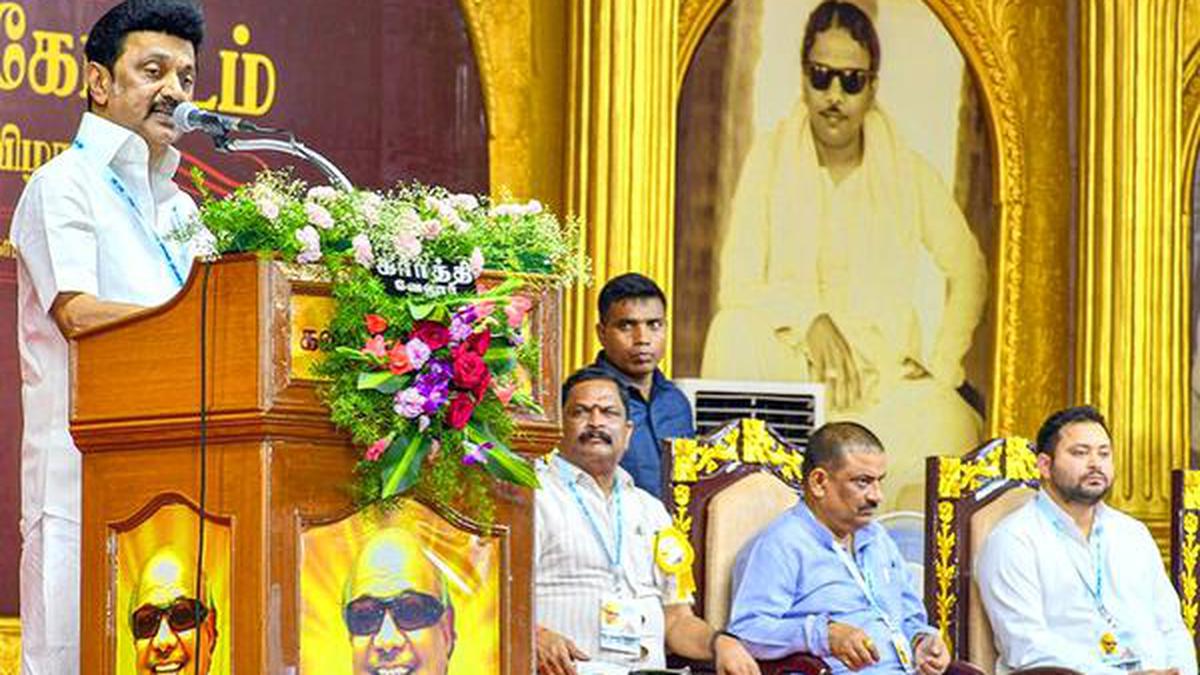
Democratic forces must unite against BJP: Stalin
The Hindu
he unity and success of the secular democratic forces in Tamil Nadu should be replicated at the national level to dislodge the BJP from power at the Centre, says Stalin
The unity and success of the secular democratic forces in Tamil Nadu should be replicated at the national level to dislodge the BJP from power at the Centre, Chief Minister M.K.Stalin said here on Tuesday.
“We stand at a critical juncture and have a duty to protect democracy in the country. If we fail to do it, Tamil Nadu, with a history of 3,000-4,000 years, will be wiped off. Allowing the BJP to continue in power will be detrimental to the future of Tamil Nadu, Tamils and India,” Mr. Stalin said, speaking at the inauguration of Kalaignar Kottam, a memorial for his father and former Chief Minister M. Karunanidhi at Tiruvarur.
To prevent the BJP from returning to power, the secular democratic forces should come together as they did in Tamil Nadu. The same kind of unified action and coordination should be replicated at the national level. “We need to win, and before that, we need unity.”
Bihar had taken the lead in protecting democracy in the country, Mr. Stalin said, pointing to the upcoming meeting of the secular democratic forces convened by Chief Minister Nitish Kumar in Patna on June 23. “Kalaignar termed democracy a lamp that lights a house and authoritarianism as a wild fire. We have a responsibility to douse the wild fire spread in 10 years of BJP rule. I will attend the meeting carrying your hopes. The lamp of democracy will be lit in Patna. Let us gear up for the Lok Sabha election, which will determine the future of India,” he said.
Mr. Stalin described his father as a tall national political leader, who had good relations with Prime Ministers and Presidents. He was responsible for major political changes and the change of governments in the country.
Mr. Nitish Kumar, who was to have declared open the memorial, could not attend the event owing to poor health and had called him up to express regret over his inability to make it, Mr. Stalin said.
In a message, read out by Tiruchi N. Siva, MP, Mr. Kumar said Karunanidhi, as a leader of the self-respect movement, stood for the rights for the marginalised, the poor and women. Referring to the June 23 meeting in Patna, Mr. Kumar said the BJP rule could be brought to an end in the forthcoming election if the Opposition parties came together.











